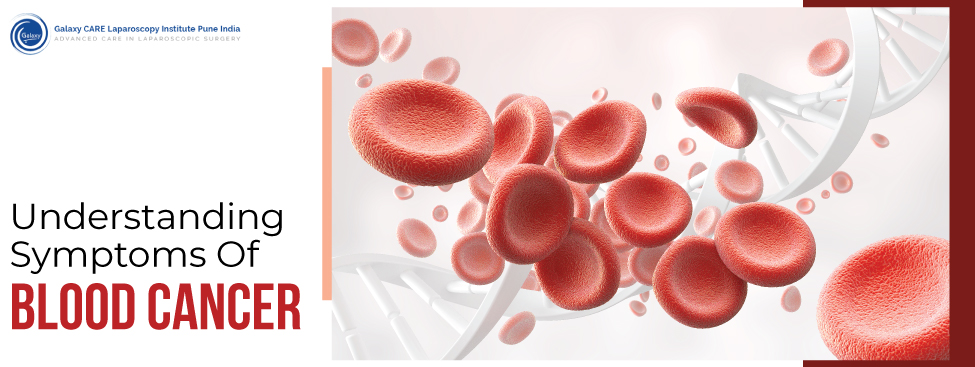
CONNECTION BETWEEN OBESITY AND CANCER
Excess body weight is linked to an increased risk of developing many health issues, including heart disease, type 2 diabetes and certain cancers. Being overweight or obese can fuel the development and progression of some of the most common and deadly types of cancer. Excess body fat can promote chronic, low-grade inflammation in the body that increases cancer risk. As the Best Cancer Hospital in Pune, we are here to explain to you the connection between obesity and cancer. Let’s begin with understanding inflammation and obesity.
HOW DOES OBESITY CAUSE INFLAMMATION?
When a person is obese, they have an excess amount of body fat, especially visceral fat that surrounds the organs in the abdomen. These visceral fat cells are large and plentiful, more so than subcutaneous fat under the skin. This excess visceral fat doesn’t have an adequate blood supply to provide it with enough oxygen. This low-oxygen environment, called hypoxia, activates certain genes in the visceral fat tissue that fuel chronic low-grade inflammation.
The visceral fat cells then release signalling molecules called cytokines and chemokines that attract immune cells like macrophages. These immune cells accumulate in the fat tissue and produce more inflammatory molecules. Over time, this chronic visceral fat inflammation leads to increased levels of C-reactive protein and other markers of inflammation throughout the body. This state of persistent, obesity-related inflammation damages cells and tissues, increasing the risk of many cancers.
Fat cells also produce excess insulin which stimulates cell growth and makes cells resistant to apoptosis or programmed cell death. This cellular environment promotes the growth and survival of mutated cells that can become cancerous.
TYPES OF CANCERS LINKED WITH OBESITY
• Colon Cancer – Having excess fat increases your risk of colon cancer, especially in men. Obesity raises colon cancer risk by 27% to 90%. If you see any symptoms, consult the Best Cancer Specialist in Pune.
• Breast Cancer – Postmenopausal women who are overweight or obese have a higher risk of developing breast cancer, especially cancer that is fueled by estrogen.
• Endometrial Cancer – Excess body fat significantly raises women’s chances for endometrial or uterine cancer by about 60%.
• Kidney Cancer – Studies show that obesity is associated with about 50% higher rates of kidney cancer compared to normal-weight individuals.
• Pancreatic Cancer – Obese individuals often have a 2x risk of pancreatic cancer. Fat cells cause chronic inflammation that damages pancreatic cells and DNA over time.
• Esophageal Adenocarcinoma – Obesity is a key factor that raises the risk of esophageal cancer, especially adenocarcinoma.
• Liver Cancer – People with obesity are more likely to develop fatty liver disease which can progress to cirrhosis and liver cancer. Seeking timely diagnosis and treatment from the Best Oncologist in Pune can help
TIPS FOR REDUCING OBESITY-RELATED CANCER RISKS
• Lose weight through a heart-healthy, well-balanced diet and regular exercise. Even a modest weight loss of 5-10% can lower cancer risk.
• Follow a diet rich in plant foods, whole grains, legumes, fish and healthy fats. This eating pattern is associated with reduced chronic inflammation and lower cancer rates.
• Limit red and processed meats which are linked to cancer development.
• Engage in at least 150 minutes of moderate aerobic activity or 75 minutes of vigorous activity per week. Physical activity helps burn calories, maintain weight and reduce insulin levels.
• Limit sugar and processed foods that are high in unhealthy fats and provide empty calories. These types of foods fuel excess weight gain and inflammation.
• Overall, make healthy lifestyle changes that you can stick with for the long term. Even small improvements can positively impact your cancer risk over the years. If you are overweight or obese, discuss weight management strategies with your healthcare provider.
THE BOTTOM LINE
If you are struggling with excess weight and obesity, it is important to get screened regularly for obesity-related cancers. The chronic inflammation and hormonal changes linked to being overweight or obese significantly raise your risk for many common and deadly cancers. By getting screened through proper cancer tests and exams, any early signs of cancer growth can be detected and addressed quickly through effective treatment.
Galaxy Care Hospital is the Best Cancer Hospital in Pune, with advanced diagnostic technologies and expert oncologists to screen for obesity-related cancers. If you have a family history of cancer or other risk factors like being overweight, we recommend consulting the Best Oncologist in Pune to discuss a personalized screening plan. Early detection is key to detecting any precancerous cells or growths before they become life-threatening cancers. Taking that first step could save your life.
SUMMARY:
Obesity and cancer share a complex relationship. Research shows that obesity increases the risk of developing various cancers, including breast, colon, and pancreatic cancer. Check this blog by Galaxy Care Hospital, the Best Cancer Hospital in Pune, on the connection between obesity and cancer. Read now!


